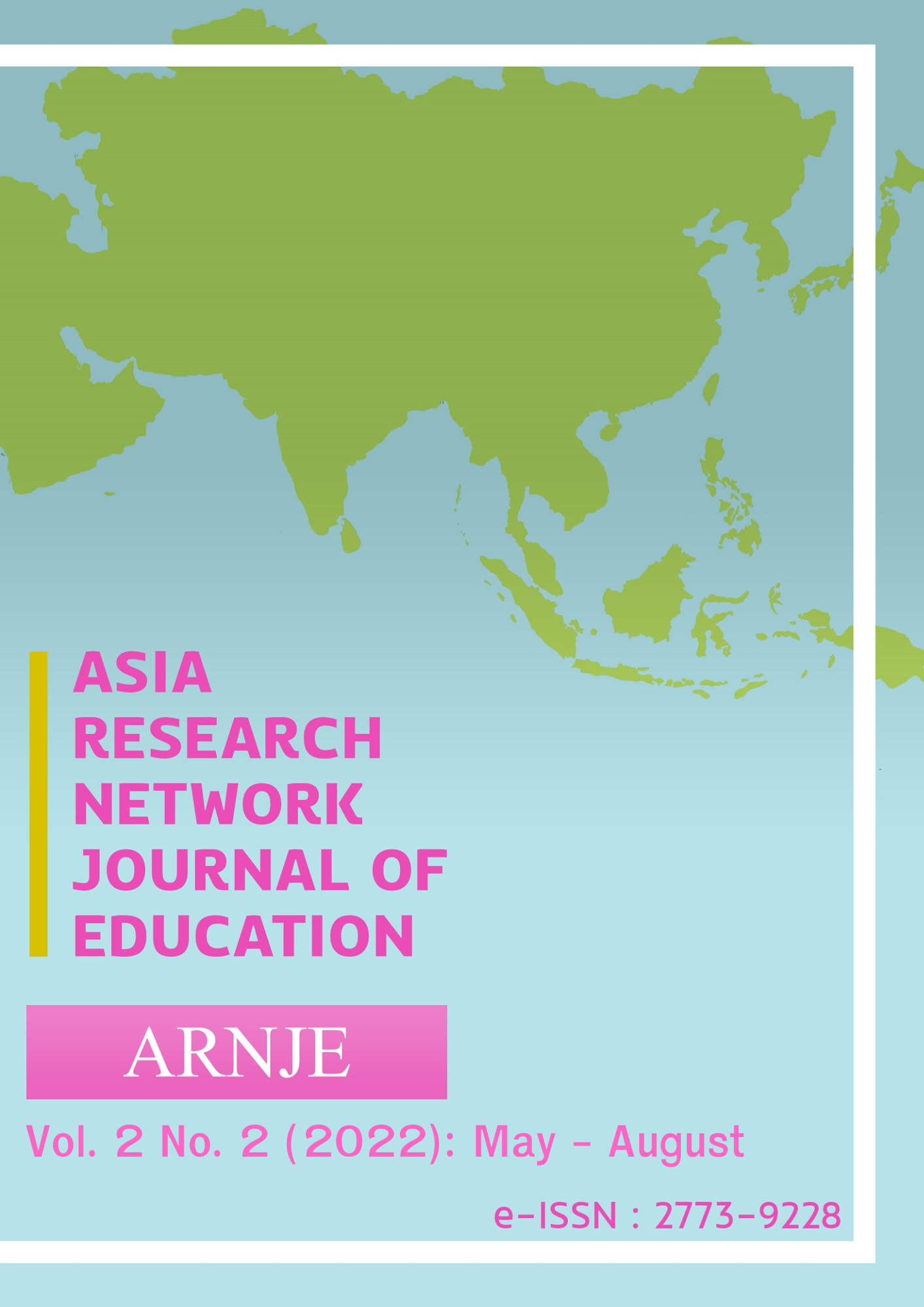Online Chemistry Learning Management Model Promoting Students’ Scientific Communication in the Special Program Classroom on Science, Mathematics, and Technology, and Environment during the Pandemic Covid-19 Situation
Main Article Content
Abstract
The purpose of this qualitative research is to study the opinions of five Chemistry teachers towards online Chemistry learning management model that has promoted students’ scientific communication in the special program classroom on Science, Mathematics, and Technology and Environment during the pandemic Covid-19 situation. The data are collected by a semi-structured interview. The content analysis is conducted to analyze the data and verified with the interviewees and the experts. The findings reveal that the online Chemistry learning management model 1) the online Chemistry learning management model is the 5 E’s of Inquiry-Based Learning according to the Institute for the Promotion of Teaching Science and Technology, 2) this online learning management based on the 5 E’s of Inquiry-Based Learning has developed students to achieve their learning objective on the knowledge about the content and developed their 21st century core skills, 3) this management based on the 5 E’s of Inquiry-Based Learning has promoted 3.1) critical thinking skill and problem-solving skill, 3.2) computer and information technology and communication skill, and 3.3) collaboration, teamwork and leadership skill, 4) the online learning management promoting scientific communication are 4.1) the 5 E’s of Inquiry-Based Learning and 4.2) Active Learning, and 5) some technologies integrated in this online learning management promoting scientific communication are Google meet, Google site, Zoom, Flip classroom, Padlet, and Google Jamboard.
Article Details

This work is licensed under a Creative Commons Attribution-NonCommercial-NoDerivatives 4.0 International License.
Copyright: CC BY-NC-ND 4.0
References
Dhawan, S. (2020). Online Learning: A Panacea in the Time of COVID-19 Crisis. Journal of Educational Technology, 49(1), 5–22.
Hardman, J., & Ntlhoi, T. (2021). Online Quizzes as Mediating Tools for Teaching Information Communication Technology to First Year Students at a College of Education in the Developing Context of Lesotho. Asia Research Network Journal of Education, 1(2), 50–60. Retrieved from https://so05.tci-thaijo.org/index.php/arnje/article/view/251470
Institute for the Promotion of Teaching Science and Technology. (2021,March 15). New Normal Education. Retrieved from https://proj14.ipst.ac.th/about-project14/
Johnstone, A. H. (1993). Introduction. In Wood C. and Sleet R. (Eds.), Creative problem-solving. London: Royal Society of Chemistry.
Lincoln, YS. & Guba, EG. (1985). Naturalistic Inquiry. Newbury Park, CA: Sage Publications.
McComas, W. F. (1998). The Nature of Science in Science Education: Rationales and Strategies. Boston: Kluwer Academic Publishers.
Miles, M, B., & Huberman, A. M. (1994). Qualitative data analysis: An expanded Sourcebook. (2nd ed). Thousand Oaks, CA: Sage.
Sarawan, S. and Yuenyong, C. (2018). Thai students’ mental model of chemical bonding. AIP Conference Proceedings. 1923, 030042-1 – 030042-7.
Suanse, K and Yuenyong C. (2021). Development of the analytic geometry flipped classroom teaching model through Google Classroom. Journal of Physics: Conference Series 1835 (1), 012077
Agad, L.M.L., Pitonang, D.J.A., Terrado, T.F., Salic-Hairulla, M.A., Gomez, R.G., Nabua, E.B., and Yuenyong, C. (2019). Development of webquest using Google Site in teaching Circulatory System. Journal of Physics: Conference Series, 1340 (1), 012060
Tull, S. P. C., Dabner, N., & Ayebi-Arthur, K. (2017). Social media and e-learning in response to seismic events: Resilient practices. Journal of Open, Flexible and Distance Learning, 21(1), 63–76.
Udomkan, W., Suwannoi, P., Chanpeng, P., Yuenyong, C. (2015). Thai Pre-service Chemistry Teachers’ Constructivist Teaching Performances. Mediterranean Journal of Social Sciences, 6(4 S3), 223-232.
Zayabalaradjane, Z. (2020). Interaction analysis of faimer mentor-learner web online collaborative learning session. Malaysian Online Journal of Educational Technology, 8, 16-27.


